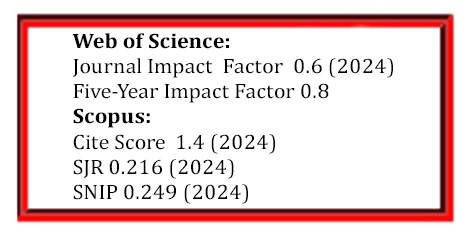Properties of residual marine fuel produced by thermolysis from polypropylene waste
DOI:
https://doi.org/10.5755/j01.ms.21.2.6105Keywords:
residual marine fuels, thermolysis, polypropylene waste.Abstract
Thermal degradation of waste plastics with the aim of producing liquid fuel is one of the alternative solutions to landfill disposal or incineration. The paper describes thermal conversion of polypropylene waste and analysis of produced liquid fuel that would satisfy ISO 8217-2012 requirements for a residual marine fuel. Single pass batch thermolysis processes were conducted at different own vapour pressures (20-80 barg) that determined process temperature, residence time of intermediates what resulted in different yields of the liquid product. Obtained products were stabilized by rectification to achieve required standard flash point. Gas chromatography and 1H NMR spectrometry show aliphatic nature of the liquid product where majority of the compounds are isoalkanes and isoalkenes. Only lightest fractions boiling up to a temperature of 72 oC have significant amount of n-pentane. Distribution of aromatic hydrocarbons is not even along the boiling range. The fractions boiling at a temperature of 128 oC and 160 oC have the highest content of monocyclic arenes – 3.16 % and 4.09 % respectively. The obtained final liquid residual product meets all but one requirements of ISO 8217-2012 for residual marine fuels.
Downloads
Published
Issue
Section
License
The copyrights for articles in this journal are retained by the author(s), with first publication rights granted to the journal. By virtue of their appearance in this open-access journal, articles are free to use with proper attribution in educational and other non-commercial settings.



